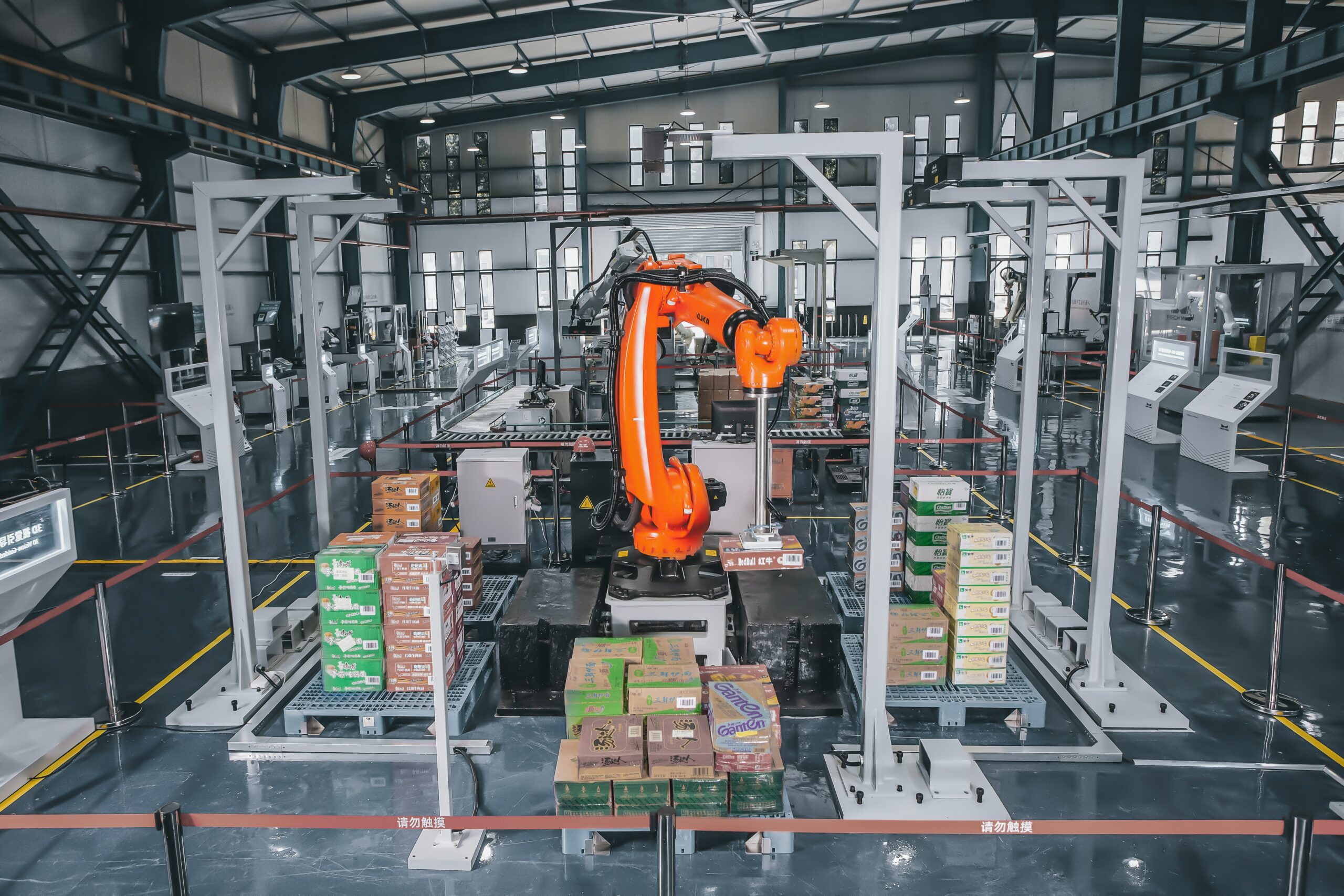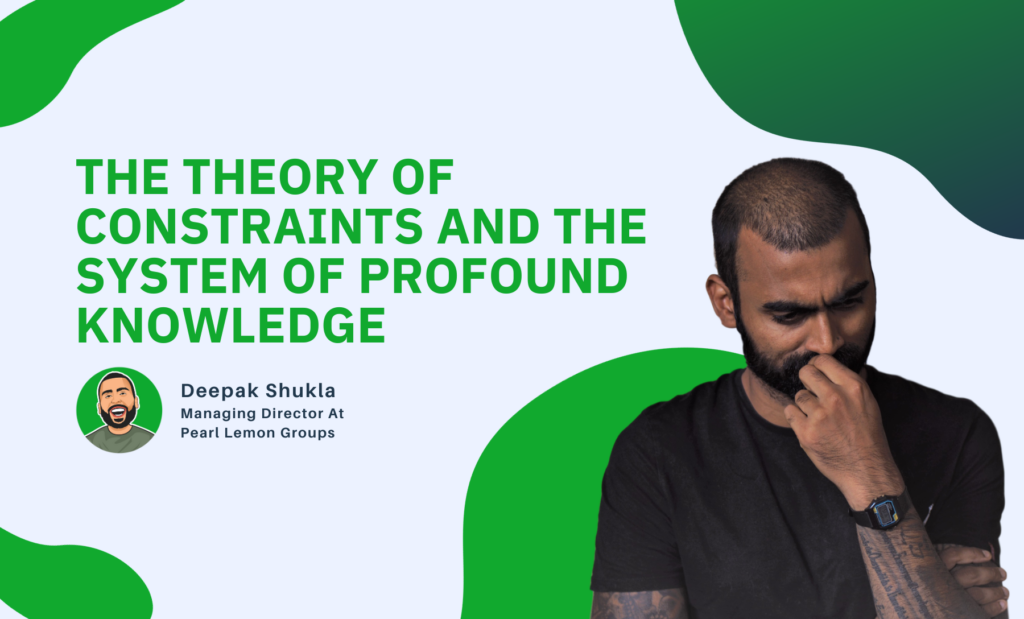Unlocking Efficiency: Lessons Learned from ‘Deming and Goldratt: The Theory of Constraints and the System of Profound Knowledge – The Decalogue’
Table of Contents
- Introduction
- An Ongoing Quest for Process Improvement
- The ‘Bookbird’ and Deming Connection
- The Power of Allegories
- Into the World of Constraints
- The Struggle of American Manufacturing
- A Return to Hometown Troubles
- Unraveling the Constraints
- The Duo of Deming and Goldratt
- Lessons for Entrepreneurs
- The Future of Process Improvement
- Conclusion
📘 Introduction
What’s up, Readers! Deepak Shukla here, and today, I’m excited to share some valuable insights I’ve gained from a book that’s been occupying my reading list lately. The book I’m diving into is titled “Deming and Goldratt: The Theory of Constraints and the System of Profound Knowledge.” If you’re interested in the world of ongoing process improvement, the power of storytelling, and the dynamic duo of Deming and Goldratt, grab a cup of coffee and join me on this enlightening journey.

🚀 An Ongoing Quest for Process Improvement
A while back, I found myself intrigued by the concept of ongoing process improvement. It was during a period when I was immersing myself in the world of manufacturing quality, particularly the groundbreaking practices of Japanese giants like Toyota and Mitsubishi. These companies were renowned for their efficient and quality-driven processes, thanks in part to the teachings of an American theoretician named W. Edwards Deming.
📚 The ‘Bookbird’ and Deming Connection
In my quest for knowledge, I stumbled upon the works of Deming. Now, don’t get me wrong; Deming’s ideas were groundbreaking, but I often found his writings somewhat challenging to digest. They felt a bit too “academic” and “theoretic” at times. That’s when I encountered this gem of a book, “Deming and Goldratt,” which promised to unravel Deming’s profound concepts in a more accessible manner.
🖋️ The Power of Allegories
“What struck me most about this book was its ability to convey complex ideas through storytelling.”
It was a stark reminder of the potency of allegories and narratives in making even the most intricate concepts relatable. As someone who aspires to write a book someday, I couldn’t help but appreciate the art of wrapping captivating ideas in the cloak of a compelling story.
🔗 Into the World of Constraints
As I delved into the book, I found myself immersed in a world of constraints and the profound knowledge that Deming and Goldratt brought to the table. The book weaves these ideas seamlessly into a narrative centered around a factory story. This unique approach not only made the theory of constraints accessible but also made it a pleasure to explore.
🌆 The Struggle of American Manufacturing
The backdrop of the book is a crucial period in American manufacturing history – the 1960s and 1970s. It was a time when Japanese manufacturing had started to outshine its American counterparts in producing high-quality items at a more competitive price. The influx of cheaper imports had led to the closure of many American manufacturing plants, causing widespread economic challenges.

💔 A Return to Hometown Troubles
The heart of the story follows a plant manager who has returned to his hometown of Barrington. His homecoming coincides with the dire situation of the local manufacturing plant he’s tasked with managing. The plant is facing challenges on multiple fronts, from financial losses to the looming threat of a shutdown. The narrative paints a vivid picture of the struggles faced by the American manufacturing industry during this era.
🔍 Unraveling the Constraints
As I progressed through the book, I couldn’t help but be captivated by the journey of the plant manager. His efforts to address the constraints and inefficiencies plaguing the plant offered profound insights into the world of process improvement. Through his experiences, the book demonstrates how identifying and addressing constraints can lead to significant improvements in operations and overall effectiveness.
🤝 The Duo of Deming and Goldratt
“At the core of this book lies the collaborative wisdom of W. Edwards Deming and Eliyahu M. Goldratt.”
These two visionaries made significant contributions to the fields of quality management and operations research, respectively. Deming’s System of Profound Knowledge and Goldratt’s Theory of Constraints, when combined, offer a holistic approach to solving complex business challenges.
📈 Lessons for Entrepreneurs
“As an entrepreneur, I couldn’t help but draw valuable lessons from the experiences of the plant manager and the principles of Deming and Goldratt.”
It reinforced the importance of ongoing process improvement, the power of storytelling in conveying ideas, and the significance of a holistic approach to problem-solving.
🌟 The Future of Process Improvement
In closing, I must say that “Deming and Goldratt: The Theory of Constraints and the System of Profound Knowledge” is a must-read for anyone interested in process improvement and operational excellence. It reminds us that the journey toward efficiency and effectiveness is ongoing and that collaboration between visionaries like Deming and Goldratt can unlock transformative solutions.
📝 Conclusion:
“In the world of entrepreneurship, the pursuit of excellence and efficiency is an ever-evolving journey.”
“Deming and Goldratt” offers a compelling glimpse into the power of storytelling and the profound wisdom of two trailblazers in the field of business improvement. It’s a reminder that, as entrepreneurs, we should continually seek ways to optimize our processes, embrace the art of storytelling, and explore holistic approaches to solving complex challenges.
So, fellow entrepreneurs, keep reading, keep learning, and keep innovating. The future of process improvement holds countless opportunities for those willing to explore and adapt, and with the right knowledge and mindset, there’s no limit to what we can achieve in the dynamic world of entrepreneurship. 🚀
BOOK SUMMARY
“The Decalogue” seamlessly integrates W. Edwards Deming’s System of Profound Knowledge (SoPK) and Eliyahu M. Goldratt’s Theory of Constraints (TOC), providing a robust framework for improving organizational performance and quality. The book outlines SoPK’s four elements—appreciation for a system, knowledge about variation, theory of knowledge, and psychology—and TOC’s methodology for identifying and addressing system constraints. Together, these theories offer managers a nuanced understanding of organizational dynamics, essential for informed decision-making and effective implementation of continuous improvement initiatives. Through case studies and practical examples, the authors demonstrate how to apply these integrated theories across various organizational contexts while providing guidance to navigate potential challenges, emphasizing the importance of commitment, communication, and ongoing learning for successful theory implementation.



